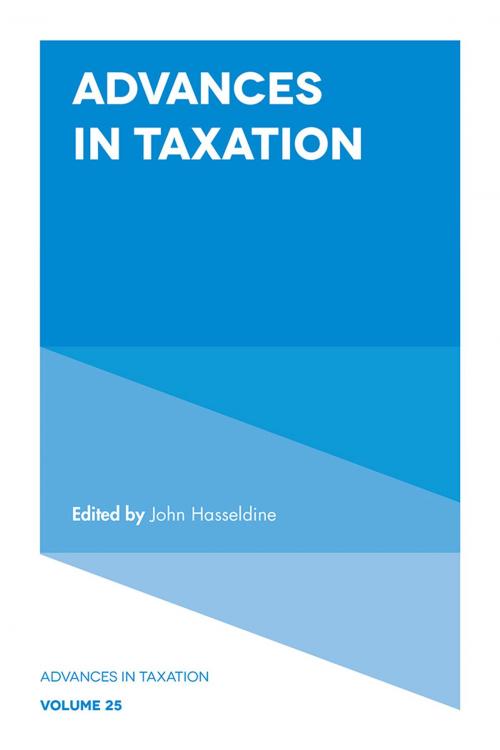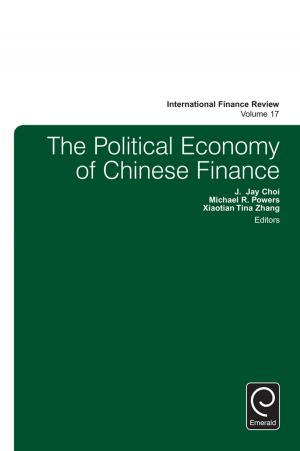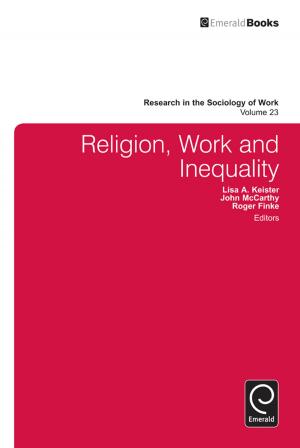| Author: | ISBN: | 9781787564176 | |
| Publisher: | Emerald Publishing Limited | Publication: | November 15, 2018 |
| Imprint: | Emerald Publishing Limited | Language: | English |
| Author: | |
| ISBN: | 9781787564176 |
| Publisher: | Emerald Publishing Limited |
| Publication: | November 15, 2018 |
| Imprint: | Emerald Publishing Limited |
| Language: | English |
Volume 25 features eight articles. In the lead article, Savannah Guo, Sabrina Chi, and Kirsten Cook examine short selling as one external determinant of corporate tax avoidance and find that short interest is negatively associated with subsequent tax-avoidance levels and this effect is incremental to other factors identified by prior research.
Next, Mark Bauman and Cathalene Rogers Bowler examine the effect of FIN48 on earnings management activity, by focusing on changes in the deferred tax asset valuation allowance. In the third article, Anthony Billings, Cheol Lee, and Jaegul Lee study whether the lowering of dividend taxes as part of the U.S. Jobs and Growth Tax Relief Reconciliation Act of 2003 resulted in an increase in dividend payouts at the expense of R&D spending.
The fourth article by Brian Dowis and Ted Englebrecht examines reasonable compensation in closely-held corporations and the impact of gender, political affiliation, and family makeup on decisions made in the U.S. Tax Court. Then, a practice-related study by Sonja Pippin, Jeffrey Wong, and Richard Mason reports on a survey of Americans living abroad on the impact of tax rules explicitly designed for these individuals. They find that Americans living abroad experience the Foreign Account Tax Compliance Act as negatively impacting their lives.
The next three articles in this volume have an international focus. Zakir Akhand investigates the effects of the corporate sector on the effectiveness of selected tax compliance instruments in the context of large Bangladesh corporate taxpayers. K-Rine Chong and Murugesh Arunachalam examine the determinants of enforced tax compliance behaviour of Malaysian citizens with trust in the tax agency assumed to be a mediating variable. Lastly, Bitzenis and Vasileios investigate the effect of the economic downturn in Greece on the factors determining the level of tax morale through primary data from a European Union funded research project on the Greek shadow economy.
Volume 25 features eight articles. In the lead article, Savannah Guo, Sabrina Chi, and Kirsten Cook examine short selling as one external determinant of corporate tax avoidance and find that short interest is negatively associated with subsequent tax-avoidance levels and this effect is incremental to other factors identified by prior research.
Next, Mark Bauman and Cathalene Rogers Bowler examine the effect of FIN48 on earnings management activity, by focusing on changes in the deferred tax asset valuation allowance. In the third article, Anthony Billings, Cheol Lee, and Jaegul Lee study whether the lowering of dividend taxes as part of the U.S. Jobs and Growth Tax Relief Reconciliation Act of 2003 resulted in an increase in dividend payouts at the expense of R&D spending.
The fourth article by Brian Dowis and Ted Englebrecht examines reasonable compensation in closely-held corporations and the impact of gender, political affiliation, and family makeup on decisions made in the U.S. Tax Court. Then, a practice-related study by Sonja Pippin, Jeffrey Wong, and Richard Mason reports on a survey of Americans living abroad on the impact of tax rules explicitly designed for these individuals. They find that Americans living abroad experience the Foreign Account Tax Compliance Act as negatively impacting their lives.
The next three articles in this volume have an international focus. Zakir Akhand investigates the effects of the corporate sector on the effectiveness of selected tax compliance instruments in the context of large Bangladesh corporate taxpayers. K-Rine Chong and Murugesh Arunachalam examine the determinants of enforced tax compliance behaviour of Malaysian citizens with trust in the tax agency assumed to be a mediating variable. Lastly, Bitzenis and Vasileios investigate the effect of the economic downturn in Greece on the factors determining the level of tax morale through primary data from a European Union funded research project on the Greek shadow economy.















